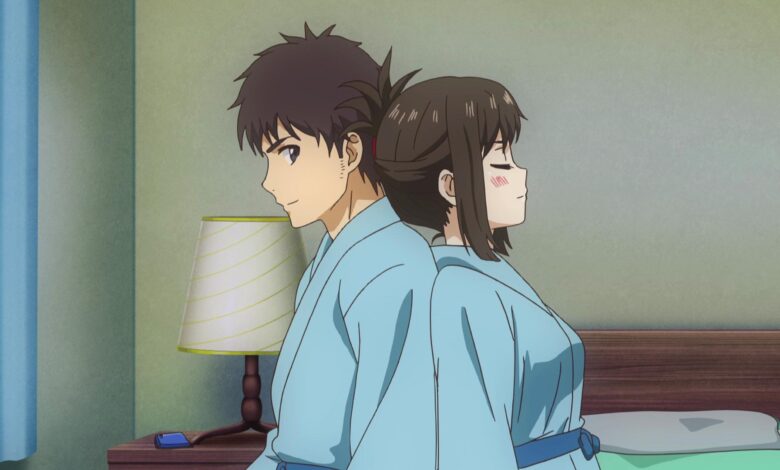The Impact of ‘Nande Koko ni Sensei ga’ on Modern Otaku Culture

Introduction to ‘Nande Koko ni Sensei ga’
In the vibrant anime world, few titles spark as much conversation and debate as “Nande Koko ni Sensei ga.” This series has captured the attention of fans and critics alike with its unique blend of humor, romance, and a dash of controversy. As an intriguing exploration into the lives of students and their teachers, it dives deep into themes that many might find taboo or uncomfortable. Yet somehow, this show has carved out a significant niche within modern otaku culture.
But what is it about “Nande Koko ni Sensei ga” that resonates so powerfully? From relatable characters to daring plot twists, each episode leaves viewers entertained and pondering more profound implications. As we delve further into this phenomenon, we’ll uncover how it reflects societal trends and influences other works in the genre. Whether you’re an avid fan or just curious about its impact on today’s anime landscape, buckle up for a journey through one of the most talked-about shows in recent memory!
The Storyline and Characters

The storyline of “Nande Koko ni Sensei ga” revolves around the daily life of high school student Nariyuki Yuiga. He finds himself in amusing yet awkward situations with his teacher, who often blurs the lines between professionalism and personal interest.
Each episode explores their evolving dynamic amidst comedic circumstances. The show’s uniqueness lies in its handling of themes of affection entangled with educational responsibilities.
The characters are vibrant and distinct. They each bring their quirks to the narrative, enhancing humor and emotional depth. From Nariyuki’s playful antics to his teacher’s charmingly unpredictable behavior, viewers can’t help but become invested.
Supporting characters add layers to this intricate plot, providing contrasting perspectives on relationships within an academic setting. Their interactions craft a relatable experience for many young adults navigating similar emotions.
Embracing Taboo Relationships in Anime
Anime often explores relationships that challenge societal norms. This includes portraying taboo connections, which can provoke strong reactions from viewers.
In series like “Nande Koko ni Sensei ga,” these dynamics are front and center. The relationship between students and teachers raises eyebrows and sparks discussions about consent, power dynamics, and personal freedom.
Such themes resonate with audiences who appreciate complex storytelling. They provide a lens to examine real-life issues through fictional narratives without the constraints of reality.
While some viewers embrace these narratives for their boldness, others critique them for glorifying inappropriate relationships. This divide highlights varying perspectives on morality in art.
As anime continues to evolve, so does its willingness to tackle controversial subjects that some might shy away from. It reflects a broader cultural dialogue about love, boundaries, and acceptance in modern society.
Controversy and Criticism Surrounding the Series
‘Nande Koko ni Sensei ga’ has sparked significant debate since its release. Critics argue that the series glorifies inappropriate relationships between students and teachers, which raises ethical concerns.
Some viewers appreciate the humor and lightheartedness of these taboo themes. Others feel uncomfortable with how such dynamics are portrayed, fearing it normalizes real-life problematic interactions.
The anime’s playful approach to sensitive topics is often met with backlash from various communities. Many believe it crosses lines that should remain uncrossed, causing discussions about morality in entertainment.
Fans defend the show by pointing out its fictional nature. They argue that it’s meant to entertain rather than serve as a moral guide. This division of opinion reflects broader cultural tensions surrounding similar narratives in modern media.
Influence on Otaku Culture
The impact of “Nande Koko ni Sensei ga” on otaku culture is profound. It has sparked discussions about the portrayal of relationships in anime, especially those deemed taboo.
Fans are drawn to its bold storytelling and character dynamics. This series challenges societal norms in ways that resonate deeply within the community. The blend of humor and serious themes creates a unique viewing experience.
Moreover, it encourages fans to explore their perceptions of love and morality. With characters who embody both vulnerability and strength, viewers find relatable aspects despite the controversial nature of the plot.
This show has also inspired fan art, cosplay, and online debates at conventions and forums. It fosters creativity among followers while pushing boundaries on what can be depicted in anime.
“Nande Koko ni Sensei ga” is a testament to how one series can shape conversations around culture, acceptance, and representation in modern media.
Other Similar Shows and Their Impact
Anime often explores themes of unconventional relationships, much like ‘Nande Koko ni Sensei ga.’ Shows such as ‘Kiss X Sis’ and ‘Aki Sora delve into taboo subjects with a mix of humor and drama. They push boundaries while challenging societal norms.
Similarly, ‘Scum’s Wish’ takes a more severe approach. It examines the complexities of love and desire among teenagers. The emotional turmoil feels genuine, resonating deeply with many viewers.
Then there’s ‘My Dress-Up Darling,’ which celebrates creativity in cosplay but hints at romantic tension between characters from different backgrounds. Each series adds a unique flavor to the genre while garnering praise and criticism.
These shows contribute significantly to modern otaku culture by sparking discussions around relationships that are not just black or white. They keep fans engaged, prompting more profound reflections on their experiences and societal expectations surrounding affection.
Conclusion: The Continuing Evolution of Otaku Culture
The journey of ‘Nande Koko ni Sensei ga’ has sparked conversations and explorations within the otaku community. Its unique approach to storytelling, especially around taboo relationships, encourages viewers to reflect on societal norms. This anime isn’t just a series; it’s a mirror reflecting the complexities of modern relationships through the lens of humor and drama.
As otaku culture evolves, shows like this one continue to challenge boundaries. They push audiences to engage with narratives that may be uncomfortable but are undeniably relevant in today’s world. The discussions ignited by such series contribute significantly to the diversity and richness of anime as a medium.
With each new release, the landscape becomes more varied and intricate. Fans eagerly anticipate how future titles will explore themes similar to those in ‘Nande Koko ni Sensei ga.” It’s exciting to think about what might come next for creators and viewers as they navigate these evolving dynamics.





